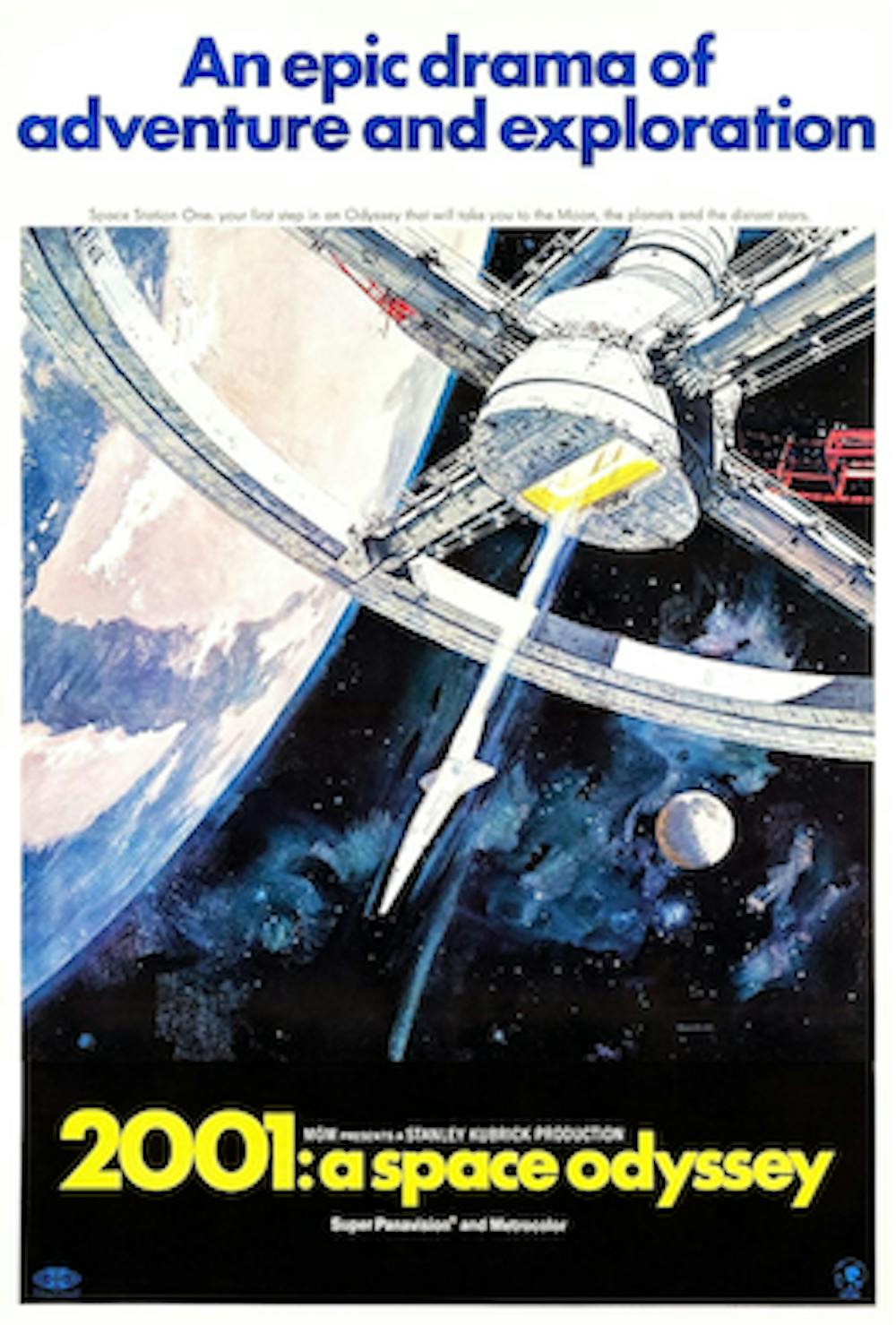Almost 50 years ago to this day — April 2, 1968 — “2001: A Space Odyssey” was released in theaters across the U.S. and Europe. Directed by Stanley Kubrick and co-written by Kubrick and sci-fi writer Arthur C. Clarke, the sci-fi epic is now widely considered to be one of the best movies of all time, even designated as a “culturally, historically, or aesthetically significant” work of art by the Library of Congress in 1991.
But the film wasn’t always looked upon with such reverence. In fact, especially within the first few years of its release, the critical community was surprisingly mixed. Although it received rave reviews from The New Yorker, the Los Angeles Times and the Boston Globe, others — including The New York Times, Variety and the New Republic — gave the film decidedly negative reviews, criticizing it for being slowly paced and thinly written. Pauline Kael — one of if not the most influential film critic for her era — even went as far as to describe “2001: A Space Odyssey” as being a “terrifically unimaginative film.”
While it may seem somewhat laughable that such a multitude of notable critics thought badly of a film that would go on to earn such rapturous praise, there is no disputing the fact that “2001: A Space Odyssey” is a decidedly unconventional, wildly ambitious — especially when one considers the lack of CGI in 1968 — and often inscrutable work of cinema. Portraying Kubrick’s imagining of the year 2001, there is a distinct absence of overly complex characters. It really wouldn’t be much of a stretch to say that mankind is the film’s main protagonist. Ironically enough, the character the film is best known for, HAL 9000, isn’t even a human but is a disturbingly intelligent computer who resides behind a glowing red light.
But this is precisely the point. “2001: A Space Odyssey” isn’t a film that is concerned with the minutiae of human experience, and instead deals the with the broader existential questions that underpin the known universe and civilization. Superficially speaking, the plot of the film follows the crew of the ship Discovery One as they attempt to investigate the recent appearance of a strange black obelisk on Jupiter. Along the way, they encounter a series of technological complications that swiftly escalate in a deadly direction. By the film’s end, however, things take a decidedly abstract turn as humanity is shown undergoing the next phase in its evolution. Of course, written explanations do not do “2001: A Space Odyssey” justice. Much of the film’s meaning is communicated through meticulously orchestrated setpieces that are still amazing to watch even to this day. To reveal much more would spoil what makes the film great. The only way to truly comprehend the genius of “2001: A Space Odyssey” is to watch it unfold onscreen, and preferably on as big a screen as possible.
Perhaps it was this majestically cinematic quality of the film that enabled audiences to appreciate it much faster than their counterparts in the critical community. In spite of its initially lukewarm reception, viewers turned out in droves to see the film when it first came out in theaters, making it the highest-earning production of 1968.
Beyond its formidable ticket sales, the movie also attracted a cult-like following from its very inception, with fans flooding Arthur C. Clarke and Kubrick’s mailboxes with thoughts, praise and theories relating to “2001: A Space Odyssey.” Quickly following the overwhelming response from audiences, the consensus in the critical community began to change for the better, with momentum building behind the film to such an extent that it ended up actually winning an Oscar for Best Visual Effects in 1969.
In the ensuing half century since its initial release, “2001: A Space Odyssey” has remained an important influence on the science fiction genre. When one watches high concept sci-fi thrillers such as “Interstellar,” J.J. Abrams’ “Star Trek” or even 2014’s “Transcendence,” the allusions to Stanley Kubrick’s original masterpiece are hard to miss. One could also say that “2001: A Space Odyssey” is responsible in some ways for the high budget sci-fi franchises such as the Marvel and Star Wars movies that have flooded Hollywood over the last decade, proving as it did that a science fiction film could bring in big money at the box office.
Even now, as the film’s 50th anniversary approaches, “2001: A Space Odyssey” endures as a vitally important science fiction film for its era. Not only did it revolutionize the way that movies were made and understood, “2001: A Space Odyssey” also proved once and for all that science fiction was a movie genre that was more than up to the task of addressing deep questions regarding technology, religion and mankind’s fundamental nature.





